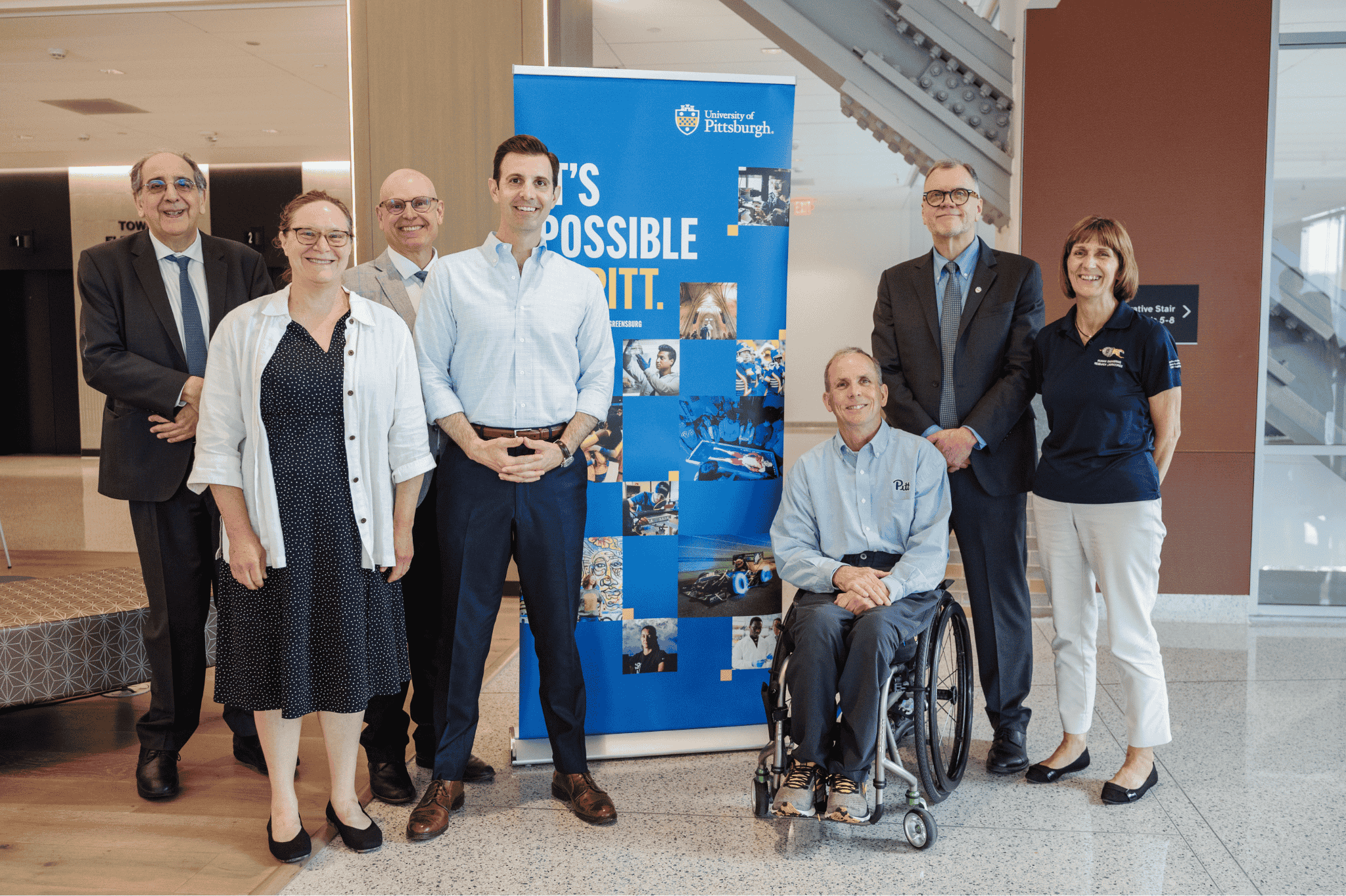
In June, Pitt hosted U.S. Representative Chris Deluzio for a tour of the UPMC Vision Institute to see demonstrations of a wide range of ongoing physical rehabilitation research projects that have the potential of assisting United States veterans. Pitt researchers ranging from bioengineering and ophthalmology to physical rehabilitation and medicine presented seven projects:
- Imaging to detect age-related macular degeneration
- Virtual reality to mimic the effect of loss of vision on hand-eye coordination
- Neural interfaces that give paralyzed people the ability to control a robotic arm using brain activity
- Stimulation of the spinal cord to restore sensory feedback and motor function from a missing foot after amputation
- Precision deep-brain stimulation to promote recovery of voluntary movement following damage to motor pathways in the brain and to control seizures
- Transformative mobility devices to expand veterans’ community participation
Congressman Deluzio, an Iraq War veteran and co-chair of the bi-partisan Congressional Brain Injury Task Force, has proposed legislation on applying technology to medicine, particularly in the care of veterans.
The visit was hosted by Rob Cunningham, Vice Chancellor for Research Infrastructure in Pitt Research. “It was an honor and a pleasure to host Congressman Deluzio to showcase Pitt’s research portfolio that spans diagnosis and treatment for individual diseases and mobility loss to techniques for assessing and improving daily life,” Cunningham said. “We have a long history of working side by side with our veteran community, and we are excited to show off a small portion of the research performed by our enthusiastic and caring faculty and students.”